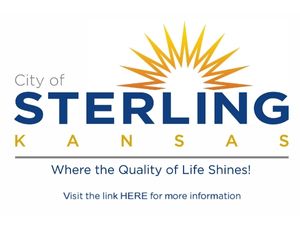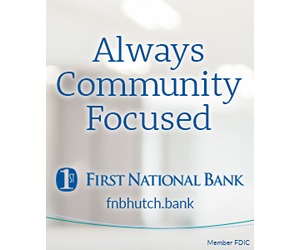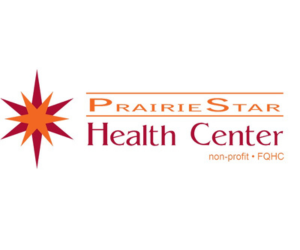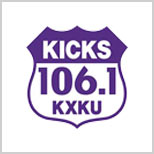By Rachel Mipro, Kansas Reflector
TOPEKA, Kan. — The Kansas Legislature passed a K-12 education package Friday that fully funds public schools but includes expansion of a private school tax credit and allows private school students to participate in public school sports and activities.
Lawmakers abandoned plans to pass a revived voucher program before adjourning.
House lawmakers approved Senate Bill 113, which provides funding for the next three years, by an 83-37 vote, despite criticism from House Democrats who felt the process hasn’t been transparent — especially with a new provision that allows the state first right of refusal over closed school buildings. The bill passed 23-16 in the Senate after lengthy debate.
Rep. Jarrod Ousley, a Merriam Democrat, challenged the conference committee bundle of policies because the provision dealing with closed school buildings wasn’t included in any previous bills, a violation of House rules. Republicans overruled his challenge.
“This is no way to craft policy,” Ousley said. “This is no way to do half of our budget.”
Sen. Tom Holland, D-Baldwin City, also questioned the need for the building-buying provision. Holland said he didn’t think the state should get into real estate, especially with no publicly available plan for the buildings bought by the state. Holland said he was concerned the goal was to move private education organizations into these buildings, edging out public schools.
“This to me reeks of massive conflicts of interest,” Holland said. “I’m only imagining because it doesn’t tell us what’s going to happen to those properties once the state picks them up.”
Private school benefits
SB113 expands a private school tax credit originally billed as a way to serve low-income Kansas students. The tax credit currently allows organizations and taxpayers to write off 70% of scholarships they provide to private schools, with a maximum allowable credit of $500,000 per year.
The bill would increase student eligibility for the program to 250% of the federal poverty level, raise the tax credit write-off to 75% and also allow unaccredited private schools to be eligible for the program, as long as the school is “working toward accreditation.” The increased tax credit rate of 75% is the highest bracket for charitable donations in the Kansas tax code.
Senate Minority Leader Dinah Sykes, a Lenexa Democrat, said she didn’t support the provision because these private schools wouldn’t have any accountability measures in place, such as reported test scores.
“We won’t expand Medicaid, but we’re going to give these dollars without any accountability,” Sykes said.
Another portion of the bill allows private school and homeschool students to participate in public school activities, such as sports teams and debate programs. The students could join any school district activities overseen by the Kansas State High School Activities Association.
“They are taxpayers,” said Sen. Molly Baumgardner, a Louisburg Republican. “They are all a part of our community. And we want to have an opportunity for them to be included.”
Several senators questioned why nonpublic students should be allowed to join these activities, especially since they wouldn’t be held to the same standards for extracurricular eligibility as public school students.
“They don’t have to have the same grade accountability as students who are enrolled. That is very unfair,” said Sen. Cindy Holscher, D-Overland Park.
Funding measures
The bill provides an inflation adjustment for the base state aid per pupil for each of the next three school years, based on a three-year average of the Midwest consumer price index. For the upcoming fiscal year, the total is $6.3 billion.
SB113 also establishes an 11-member special education funding task force that would study the way public schools use special education funding. And it authorizes school districts to provide a salary to their local board of education members.
The bill doesn’t include new funding for special education needs, which has been a rallying cry for educators.
The Kansas Association of School Boards estimates the state is currently about $160 million short of the special education funding required by state law. The state is supposed to provide 92% of the costs of special education, but the Legislature hasn’t met this requirement since 2011.
In her proposed budget, Gov. Laura Kelly asked for the allocation of $72.4 million for special education every year for the next five years to meet the statutory requirement. SB113 instead increases state funding for special education by about $7.5 million, an inflation adjustment for current spending levels.
Baumgardner said she was tired of hearing that schools needed more funding.
“We kind of continue to hear the beat, beat, beat of the drum, ‘When are we going to fully fund schools?’ ” Baumgardner said. “We are. We have for four years.”
The state constitution requires adequate and equitable funding of schools. Lawmakers passed a plan five years ago to gradually increase funding each year until reaching an amount in the current school year that is constitutional for the first time since 2008.
Teacher raises
The legislation allows school districts to raise local taxes in order to implement pay raises for teachers.
This provision raises concerns that wealthier districts would have an unfair advantage in attracting teachers, leaving rural districts struggling to recruit and retain educators. Lawmakers who oppose the provision say it will cause an equity issue that may have to be thrashed out in court.















































